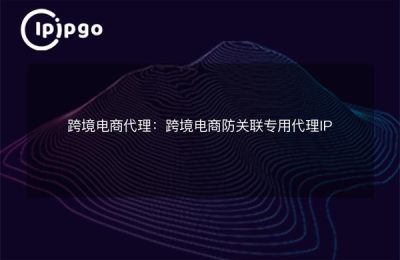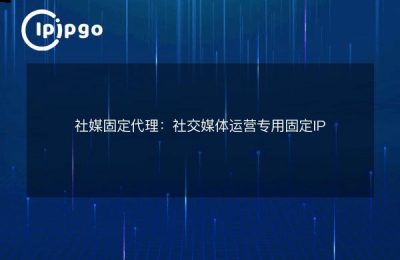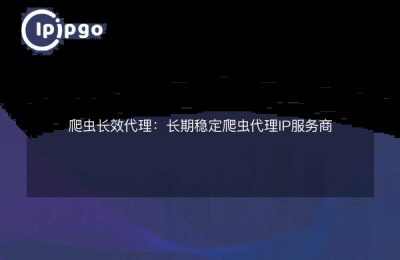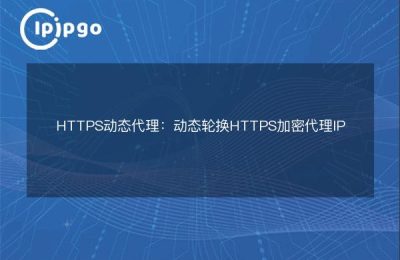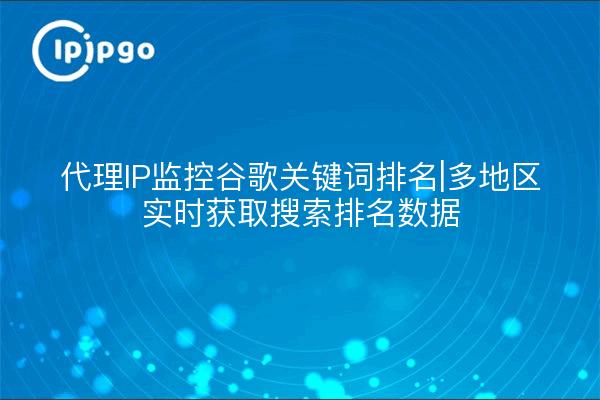
How to Monitor Google Keyword Ranking with Proxy IP?
One of the biggest headaches for companies doing business overseas is not knowing what search results users in the target region will see. For example, if you promote "smart bracelet" in the United States on the first page of Google, but in Germany may fall to the third page. That's when you need toGet real search data through proxy IPs in different regionsThe
Why are traditional methods unreliable?
Many people are used to switching regions with a VPN, but there are three fatal flaws with this approach:
| 1. IP purity | Easily recognized by Google as a server room IP |
| 2. Location coverage | Access to data for only a few countries |
| 3. Concurrency limitations | Inability to monitor multiple areas simultaneously |
Solve these problems with ipipgo's Residential Proxy IPs, their 90 million+ home residential IPs are distributed in over 240 countries and territories, simulating the Internet environment of real users.
Step-by-step breakdown of the actual operation
Step 1: Create a regional keyword bank
Organize the target country/city and corresponding keywords into a table, for example:
|Country |City |Keyword | |--------|---------|------------------| | Germany | berlin | smartwatch | | Brazil | São Paulo | relógio inteligente |
Step 2: Configure proxy IP rotation
Obtaining dynamic residential IPs through the API provided by ipipgo suggests setting upDifferent city IP for each request. Focused attention:
- Setting reasonable intervals between requests (more than 30 seconds recommended)
- Using Random User-Agent
- Matching the local language environment
Step 3: Data Cleaning and Analysis
The raw data received needs to be filtered for interfering items such as ad space and selected summaries. It is recommended to useHeat map of ranking fluctuationsto visualize the change in rankings for different regions.
Avoid three common potholes
Pit 1: IP Reuse
Frequent queries for the same IP will be limited by Google. ipipgo's dynamic IP pool allocates new IPs for each request, effectively avoiding this problem.
Pit 2: Device fingerprint leakage
Browser parameters such as time zone, language, screen resolution, etc. should match the proxy IP location. For example, when using a German IP, the time zone should be set to Berlin time.
Pit 3: Missing data on mobile
Remembering to monitor mobile rankings at the same time, ipipgo supports the setting of device type parameters and can simulate search results accessed by cell phones.
Frequently Asked Questions QA
Q: What if I need to monitor 50 countries simultaneously?
A: Use ipipgo's batch task feature to support theMulti-threaded concurrent requestsThe measured response time for processing 100 simultaneous regional queries is within 8 seconds.
Q: The ranking data obtained is biased?
A: check whether to enable the "precise positioning" parameter, add &uule= parameter after the Google search URL (need to cooperate with the latitude and longitude positioning function of ipipgo)
Q: How does historical data compare?
A: ipipgo's recommendedIP Binding FunctionThe data is collected weekly using IPs from the same areas to ensure a consistent baseline for comparison.
Why choose ipipgo?
After testing 10 agency service providers, we found that monitoring Google rankings takesSimultaneously meets IP purity, geolocation accuracy, protocol compatibilityThree conditions. ipipgo not only supports SOCKS5/HTTP full protocol, its residential IP survival rate is 37% higher than the industry average, which is especially suitable for scenarios that require long-term stable monitoring.
They recently addedAutomatic de-duplication validationA feature that automatically filters IPs that have been flagged by Google, a detail that is critical to maintaining data accuracy and one that other proxy providers tend to overlook.

